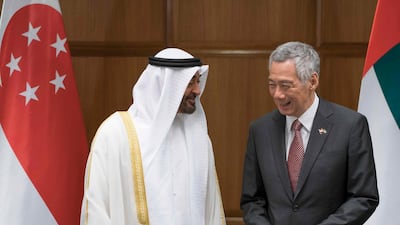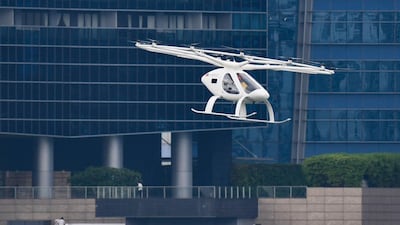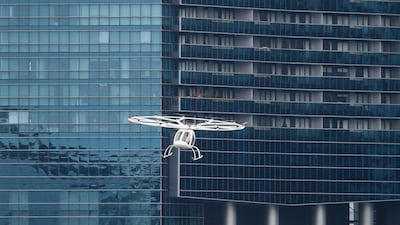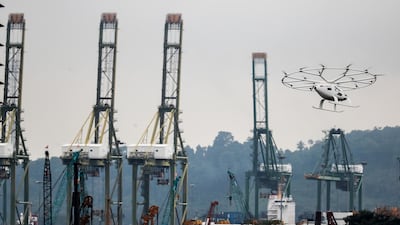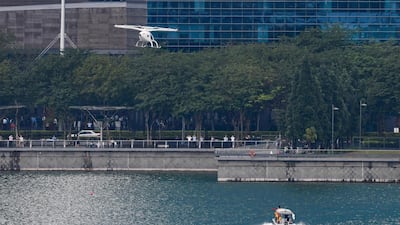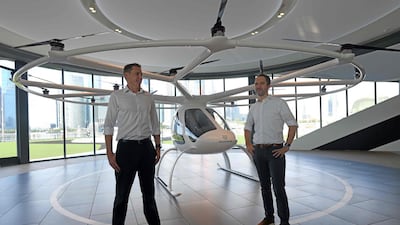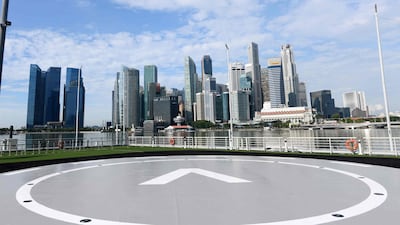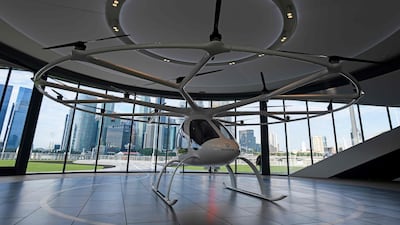In nine months, the UAE will host the World Expo in Dubai. With more than 190 countries taking part, Expo 2020 will provide an important platform for an inclusive conversation on the most pressing global challenges. The unprecedented interconnectedness of our world, brought about by technological advancements over the past 10 years, makes this task all the more urgent.
Five trends in particular will dominate headlines and command global attention in the years ahead.
First is the changing dynamics between the US and China. The danger of the world's two biggest economies decoupling has caused considerable anxiety around the world. It goes beyond the simple notion of a trade or technology war.
Fundamentally, it belies a lack of mutual trust. This competitive dynamic is likely to continue beyond the 2020 US presidential elections, regardless of its outcome. It will have an impact on all countries, large and small.
In South-East Asia, we view such developments with great concern. None of us wish to be forced into making invidious choices. We want to continue working with the US and China for mutual benefit, and hope both sides will accommodate each other's legitimate interests. At the same time, competition can be constructive and need not lead to conflict. If managed well, it can spur innovation and drive progress. We hope that both parties will find a way forward and recognise that their relationship need not be zero-sum.
Second is the eroding global consensus on globalisation. We see protectionist, isolationist and hyper-nationalist sentiments taking root in many countries across the world, with strong pushback against an open and integrated global economy. Such nativist sentiments have altered domestic political landscapes and given rise to inward-looking policies. The result has been an increasingly polarised world.
Third is the irreversible march of technology. Widespread disruption brought about by AI, machine learning, and big data is a common cause uniting both developed and developing economies. AI will have a pervasive impact across all economic sectors and industries. It will also transform the way people live, the way cities function and how governments operate. The challenge facing all of us is to pre-empt and prepare for the digital revolution. This entails not only restructuring labour markets but fundamentally reviewing our approach to education.
Fourth is growing environmental risks. All countries contend with differing manifestations of a changing climate, such as extreme weather events, food shortages, or forced migration. As littoral states, both the UAE and Singapore feel our vulnerabilities against rising sea levels, which continue to climb at a worrying rate.
Forging a global consensus towards combating climate change and promoting sustainable development remains a challenging task. Many countries, including Singapore, support the 2030 Agenda for Sustainable Development as part of the resolution adopted by the United Nations General Assembly in 2015. However, progress towards the UN’s Sustainable Development Goals needs to be expedited through closer cooperation with all stakeholders, including the private sector.
Fifth, the always complicated and longstanding conflicts of the Middle East present a clear and present danger far beyond her shores.
While the global outlook is challenging, it need not be bleak.
For countries like Singapore and the UAE, our smaller geographic and demographic size is often wrongly assumed to be a disadvantage. On the contrary, these very qualities afford us a nimbleness and agility to respond effectively to rapidly changing circumstances. We can adapt quickly and seize the initiative to carve a unique niche for ourselves within the global community.
A clear-eyed and pragmatic approach to foreign policy will allow us to navigate ongoing transitions effectively. Amidst rising global uncertainty, small countries can preserve our autonomy by seeking out like-minded partners and building coalitions in situations where a cohesive global response may not yet be practicable. A look at the experiences of both Singapore and the UAE suggests that three qualities will be critical to such an approach.
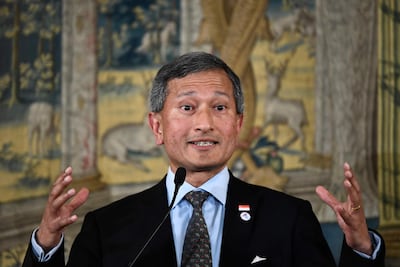
First is to stay connected. For both our countries, commitment to multilateralism and international law remain key foreign policy tenets. Multilateral institutions give us a stake in the global commons, and a means to defend and advance our national interests. Rules-based systems help to create a stable environment for all countries regardless of size.
It is in this spirit that both our countries are active participants at the UN. The UAE, for example, hosted the Global Preparatory Meeting for the UN Secretary-General’s Climate Action Summit in June 2019, which set out to find ways to accelerate implementation of the Paris Agreement on climate change. On our part, Singapore was honoured to have a UN Convention on Mediation – signed by 46 countries – in Singapore last August. Singapore and the UAE are also dedicated members of multilateral groupings, such as the Forum of Small States, the Global Governance Group, and the Group of Friends on Sustainable Cities.
Second is to stay competitive. Both Singapore and the UAE are open economies, and global trade is a shared lifeblood. It is in our DNA to continually reinvent ourselves to stay ahead of the curve, including riding the current technology wave.
The recent launch of the Mohamed bin Zayed University of Artificial Intelligence represents an exciting development in this direction. In Singapore, we launched our National AI Strategy last November, with a focus on AI applications in transport, smart cities, healthcare, education and security.
A critical part of remaining competitive is the ability to scan the horizon and anticipate future needs and challenges before they emerge. In Singapore, we established the Future Economy Council some years ago for this very purpose. I read with great interest that the UAE government declared the national theme for 2020 to be "Towards The Next 50", to lay the groundwork for the next half-century even as the UAE prepares for its Golden Jubilee celebrations next year. This ability to think and act long-term is a valuable commodity, especially in a volatile global landscape.
Third is to stay relevant. During Singapore's chairmanship of the Association of Southeast Asian Nations (Asean) in 2018, we launched the Asean Smart Cities Network, or ASCN. The ASCN looks to develop and enhance interoperability across the region for collective economic and social growth. In the area of renewable energy, the UAE has played an active role by hosting the International Renewable Energy Agency, and organising annual flagship events such as this week's Abu Dhabi Sustainability Week.
The UAE's "Year of Tolerance" in 2019 helped to spotlight its thought leadership in promoting moderation, understanding and inclusiveness amidst growing global divisions and polarisation. Singapore also organised the inaugural International Conference on Cohesive Societies last year, reflecting our shared belief in the importance of pluralism amidst diversity.
This common pragmatic approach of moving swiftly to secure win-win outcomes in areas of mutual interest, while continually looking at the future, has led to a fruitful friendship between Singapore and the UAE for more than three decades. In fact, we mark 35 years of diplomatic relations this year.
With the signing of the Singapore-UAE Comprehensive Partnership during a visit by Sheikh Mohamed bin Zayed, Crown Prince of Abu Dhabi, to Singapore in 2019, we are well-positioned to explore collaboration in new frontiers, such as the digital economy, food security and innovation. We look forward to leveraging our participation in Expo 2020 to co-create solutions to global problems with the UAE and other international partners.
Such linkages will prove ever more critical going forward in a fast-changing and uncertain world.
Dr Vivian Balakrishnan is Singapore’s minister for foreign affairs and minister-in-charge of the Smart Nation Initiative
